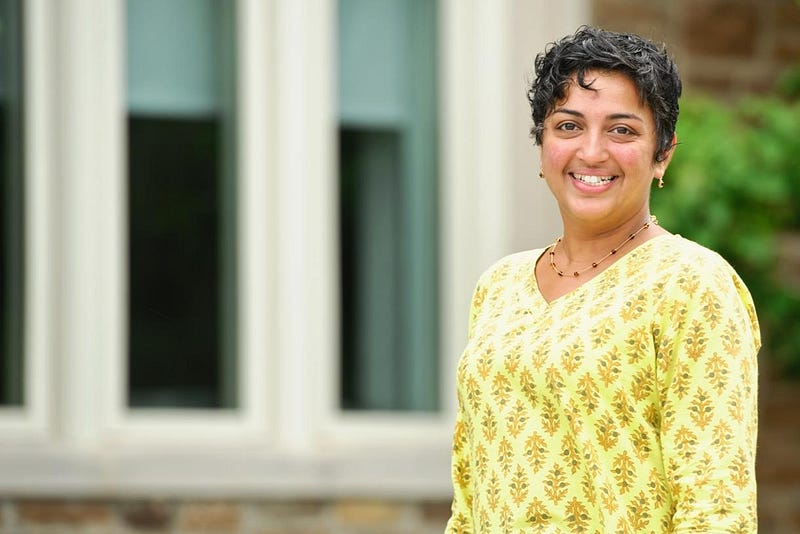
On Tuesday, March 7th at 4:10 p.m., just over 60 people flocked to the Bradford Auditorium in KJ as 111 more logged onto a Zoom for the monthly faculty meeting. Though the gathering maintained a casual atmosphere and jokes were thrown around the group throughout the duration of the meeting, a serious motion with the potential to impact the faculty decision-making process in a great way was debated: item five on the meeting’s agenda was a motion to change the
Faculty Handbook
to allow lecturers and senior lecturers to vote during faculty meetings.
Presently, the language in the
Faculty Handbook
regarding the ability to vote on faculty issues reads, “[a]ll members of the Faculty except Lecturers or Senior Lecturers have the right to vote, and each is expected to attend all meetings of the Faculty.”
The
Faculty Handbook
delineates the definitions of different faculty rankings, including Lecturers and Senior Lecturers. “The rank of Lecturer is offered to persons for the specific purpose of teaching one or two courses per year,” and “Lecturers who have taught for at least twelve semesters at the College are eligible to be considered for promotion to the rank of Senior Lecturer. Senior Lecturers teach one or two courses per year.” These roles are different from Visiting Assistant Professors, who are post-doctoral fellows that teach “at least a three-course load.”
The motion to enfranchise Lecturers and Senior Lecturers was brought forth by three faculty members, Susan Jarosi, Pavitra Sundar, and Franziska Schweiger, who are part of the Hamilton College chapter of the American Association of University Professors (AAUP) — a nonprofit membership organization with the goal “to advance academic freedom and shared governance.” The letter which originally brought the motion forth also contained 26 faculty signatories supporting the motion.
In an email to the
Spectator
, Professor Jarosi explained that those “bringing the motion hope to change the
Faculty Handbook
so that all faculty, no matter their rank, whether full time or part time, will have a voice in faculty governance.” She also expressed during an interview that “we feel strongly that the more voices the better, that diversity is important, faculty who have different experiences at Hamilton are important and we want all of those voices. It makes all of us better, it makes the institution better, it makes the institution stronger and we really want to emphasize that point and that framing that this strengthens the faculty voice, not weakens it.”
Professor Sundar explained the rationale behind the motion during the faculty meeting. Sundar provided a brief history of this issue over the past three years which began during a May 4, 2020 meeting in which a similar motion was brought to give voting rights to all those teaching any credit bearing course (including quarter-credit and half-credit courses). She noted that the 2020 motion was much broader than the current motion, and she said there was minimal overlap (five names) between the signatories of the 2020 motion and the current motion, meaning that it is a misconception that only a select group of faculty members are interested in this issue.
Professor Sundar also shared that the 46 Lecturers and Senior Lecturers at Hamilton comprise 15% of the faculty labor force and make significant contributions. She stated that since Lecturers are allowed to speak but not vote at meetings, their voices are not valued as much as other faculty members. Sundar continued by sharing that those who are not at the center of the institutional hierarchy can teach us things about these hierarchies that those at the top may not see, so the perspectives of Lecturers and Senior Lecturers can be powerful and clarifying. Sundar ended her remarks by stating, “enfranchisement is not a zero-sum game. It can only help us as an institution and as a faculty.”
After Sundar’s initial remarks, debate between faculty members regarding this motion ensued. Several speakers spoke in favor of the motion, like Professor Anna Huff, who shared that as a Lecturer at Cornell she was not required to attend meetings, but she was allowed to vote, which felt empowering. Professor Celeste Day Moore saw this motion as an opportunity to recognize how much of our curriculum as an institution is taught by Lecturers.
However, several people in attendance noted key concerns with the proposed motion. Two faculty members expressed reservations about whether lecturers have the experience or exposure to be involved with decision-making processes.
The major concern vocalized by the faculty was that the proposed new language of the
Faculty Handbook
that would allow Lecturers to vote would also require them to attend faculty meetings, an issue that struck Professor Ryan Martini as “uncompensated labor that doesn’t make a lot of sense.” The concern was first raised by Professor Debra Boutin and subsequently echoed by numerous individuals.
Professor Margaret Thickstun raised another concern: administrators who teach one class would gain faculty voting rights from this motion. Thickstun expressed that she is not comfortable with a member of the administration voting on faculty issues.
To address these concerns brought up by the faculty, Professor Kate Brown motioned to send the proposed change back to a committee comprised of the three faculty members who originally brought the motion (Jarosi, Sundar, and Schweiger) to rework the proposal. The committee will bring an edited version of the motion to the May 1, 2023 faculty meeting where the gathered faculty will make a decision on whether or not they will enfranchise part-time Lecturers and Senior Lecturers.
























